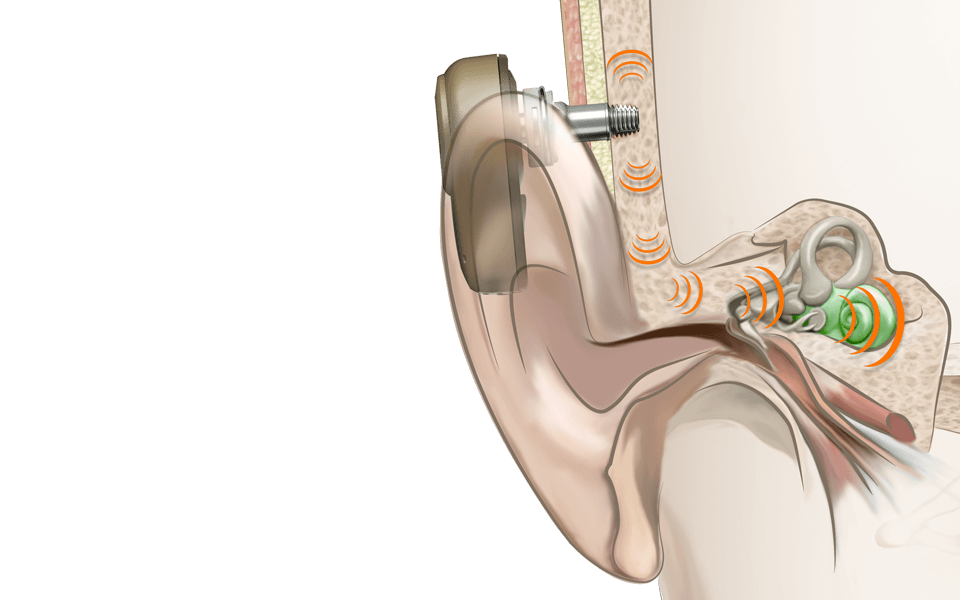How bone conduction systems work
Bone anchored hearing systems are designed to use your body’s natural ability to transfer sound through bone conduction. The sound processor converts sounds into vibrations, which are then sent through your skull bone and directly on to your inner ear.
A bone anchored hearing system consists of two parts:
1. A small titanium implant placed in the bone behind the ear
2. A sound processor that attaches to the implant

How it works
Once you click the sound processor onto the implant, it picks up sound waves in much the same way as a conventional hearing aid. However, instead of sending these sound waves through the ear canal, it transforms them into sound vibrations that can be sent through your skull bone, bypassing the outer and middle ear. Thanks to the direct connection between the sound processor and the bone through the implant solution, your skin does not dampen the sound vibrations, providing a clearer sound.
When you click off the sound processor, e.g. for showering or sleeping, no sound vibrations are sent, and your hearing will return to its original state.
The Ponto System uses Direct Sound Transmission to transmit sound, as it provides the best amplification and output compared to skin drive or magnet systems, in which the skin creates a dampening layer between the sound processor and the bone.
This animation shows how Direct Sound Transmission works to deliver the renowned Ponto sound quality.
Find out whether you are a candidate